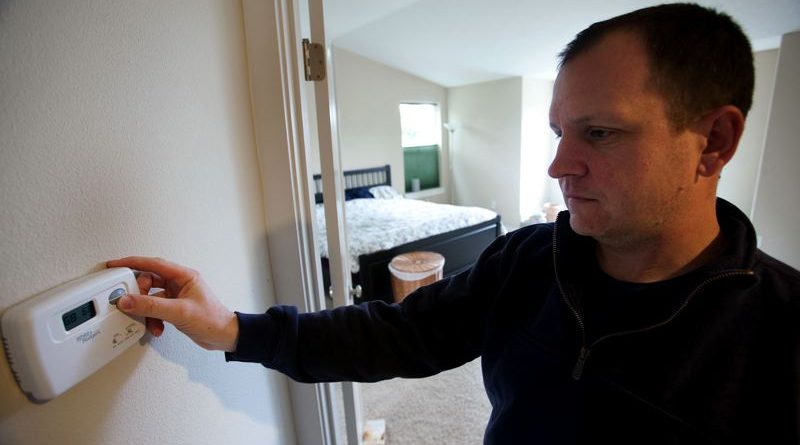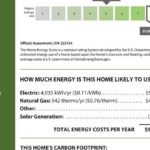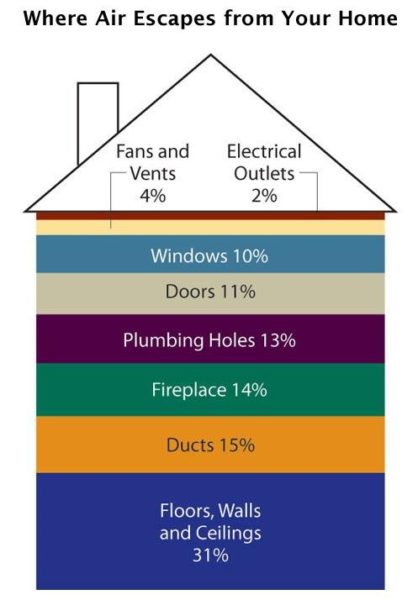Hillsboro poised to require home energy score for sellers – Pamplin Media Group
Energy Disrupter
On July 6, the Hillsboro City Council will likely adopt a policy requiring homesellers to show an energy use score.
 The Hillsboro City Council is poised to start requiring residents to show a home energy score when selling their houses.
The Hillsboro City Council is poised to start requiring residents to show a home energy score when selling their houses.
At a regular meeting on June 15, city councilors unanimously voted in favor of requiring the disclosure from homesellers during a first reading of the ordinance.
Support for the policy, which requires single-family homeowners to obtain and make public a professional assessment of their home’s energy efficiency before listing it for sale, has been mixed.
Forty-nine percent of 718 survey responses received by the city about the policy voiced opposition to it, while 47% supported it, according to the city. Four percent of people voiced a neutral opinion on the subject.
Supporters of the requirement say it’s an important transparency measure that empowers homebuyers to compare the costs of heating and cooling a home, which accounts for 15% of Oregon’s greenhouse gas emissions.
Citing a recent local study, Hillsboro officials point to residents falling behind on utility bills as the most common outcome of poverty in Hillsboro.
The burden also disproportionately impacts residents of color, who are more likely to live in poverty in Hillsboro and pay a higher portion of their income on housing-related costs, according to the study.
Supporters also say it incentivizes homeowners to implement energy efficiency upgrades, because such assessments make energy efficiency recommendations.
“This home energy policy is a fantastic, easy and pragmatic way to reduce community energy waste and will benefit Hillsboro residents with better home quality,” said Debby Garman, a Hillsboro resident and member of the climate change action group 350PDX’s Washington County chapter, during public comment June 15.
Opponents of the requirement say it’s government overreach that will add costs to the already-expensive process of selling a home.
They say it will reduce housing affordability, as sellers pass on the costs of getting an assessment to buyers.
“When we sell our homes, that’s when we’re moving, which is already a very stressful event,” said Kevin Huang, a Hillsboro resident, during public comment. “The home energy score requirement would add unnecessary costs and burden to homesellers. There are other ways to address climate issues that will have much more impact.”
Adoption of the ordinance will likely occur following a public hearing and second reading on Tuesday, July 6. The ordinance would take effect Sept. 1.
The Hillsboro City Council first considered the policy during a work session in December 2019 after city staff participated in a national policy cohort with other local governments to research such policies.
Portland implemented a similar policy in 2018.
Hillsboro City Council President Kyle Allen noted that the ordinance directs the city to create an assistance program to help low-income residents pay for a home energy assessment.
Hillsboro officials estimate that home energy assessments cost on average between $150 and $250.
“We’ve really helped address that, which was a legitimate concern,” Allen said. “Staff have put together a policy that is probably the best version that we can put forward at this time and we can always adjust it later if needed.”
City Councilor Olivia Alcaire said that while she appreciates the policy, she worries about the impact it will have on people who can’t afford to make the energy efficiency upgrades that assessments recommend.
Although the cost to have someone assess a home’s energy efficiency is relatively affordable, implementing upgrades such as replacing an old heating or cooling system or insulating a home can cost several thousand dollars.
“We have a lot of people who are very present-minded and dealing very short-term, maybe month-to-month, and not thinking long-range,” Alcaire said. “If we put this policy out there, then have an education program to go with it.”
A home energy score report would include an energy score from one to 10, with 10 being the most efficient; estimated annual energy cost including a breakdown of the costs for each energy utility; carbon footprint, or tons of carbon the home produces annually; a list of priority energy-saving projects to reduce energy use and cost and improve the home energy score; estimated carbon reduction, energy savings and cost savings if the priority projects are completed; and additional energy upgrade recommendations.
You count on us to stay informed and we depend on you to fund our efforts. Quality local journalism takes time and money. Please support us to protect the future of community journalism.
Original Source: https://pamplinmedia.com/ht/117-hillsboro-tribune-news/512714-410086-hillsboro-poised-to-require-home-energy-score-for-sellers
















